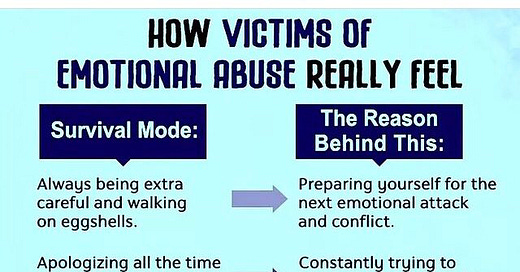Last night I went with a friend to see a minor league hockey game that was being played in Baton Rouge. We don’t have a local hockey team so as a transplant from the Northeast US it was a welcome visit. It turned out that the game ended during overtime when one of the coaches decided to pull their goalie to get an extra skater on the ice, trying to maintain control of the puck to get the winning goal. It backfired as the other team eventually scored into the empty net.
I had never seen that before. I’ve been following and watching hockey games for my entire life and yet here was something I’d never seen before.
It was a small reminder that life can always be surprising and show us things we haven’t seen before. There is hope in that. Hope for something different tomorrow, next week, next year.
If you find anything hopeful or educational in this week’s newsletter I hope you’ll share it and show someone you care about something new.
New From the Blogs
Sharing – The Problem of Male Grief
“I also recognize that I was lucky to have people in my life who saw that. Many men do not have any space to grieve or process emotions other than anger. For those men, read the whole thing and learn how to create space.”
Sharing – Growth Requires Unlearning as Much as Learning
“As children in an abusive situation, we may have learned a lot of things that helped us survive that situation. Outside of that situation, as adults, however, it may be time to unlearn some of those things.”
“Unfortunately, the article has a few stories that make it evident that some of these tech startups acted like, well, tech startups. Putting growth and valuation above all else. That’s not really how health care of any kind works, let alone mental health treatments. I might believe that technology can be part of the solution, but that assumes that the people running these technology companies act in the patient’s best interest, not their business interests.”
Shared from Elsewhere
Even gritty people get discouraged
“Everyone gets discouraged. Everyone cries, sometimes. But some of us cross the Rubicon. When we do, we can say without reservation: Setbacks don’t discourage me for long.
Don’t think that gritty people never feel discouraged.”
How to Survive the Holidays with Anxiety and Depression
“At this time of the year, I usually look forward to the holidays. But there are some years when my holiday spirit seems nonexistent. So far this holiday season, my anxiety and depression have been getting worse. Here are some ways I noticed that I am struggling with my mental health and what I plan on doing about it this month.”
Grief and trauma training is unexpectedly healing for school district staff in Texas
“At a school district in Texas, mental health professional training to address grief and trauma is healing for school-based therapists and social workers who lost loved ones during the pandemic.”
Resource - Child Sexual Abuse | Helping Survivors of Sexual Assault and Abuse


Podcast - Finding my voice after Childhood Abuse with Dr. Amanda Helman
“You can decide which holiday traditions you want to keep, and which ones you’d like to change.”
Give the Gift of Mental Health: 5 Present Ideas
From the Archives
Link – I speak out about my sexual abuse because others still suffer in silence
“I speak because what happened to me matters. Victims having the space and an invitation to speak matters. I speak because I refuse to continue to feel ashamed. Because it’s important that sufferers see others speaking out. I speak because 85% of people who have suffered the trauma that I have feel they can’t speak up themselves. I speak because, fortunately, I feel I can.”
“Mental health is complicated. The solution to one individual case is complicated. The solution to the lack of resources is complicated. Telling people to get more exercise, let alone selling them the diet and workout that will solve all their mental health issues, is a fraud, isn’t it? Saying that we simply need to give everyone free therapy without addressing the serious shortage of therapists is as well.
Anyone who suggests there is a simple solution to the mental health problem facing us as a country and the world is not to be taken seriously.”
Some Conversations Are Easier Online
“When we write about mental health on a website or social media, we aren’t pulling any particular person into the conversation. We’re not trying to connect with one individual. We’re putting the story out to the public, and we see the folks who respond. We don’t see the hundreds of people who don’t respond. We are taking a risk, but it’s not a personal risk. Talking to a boss or someone close to us is a different risk. It’s much more personal.”




